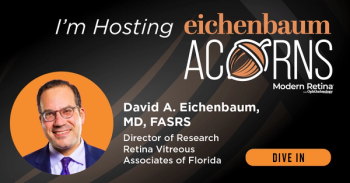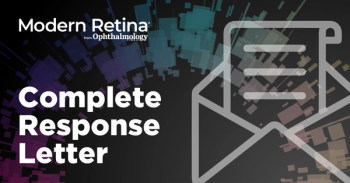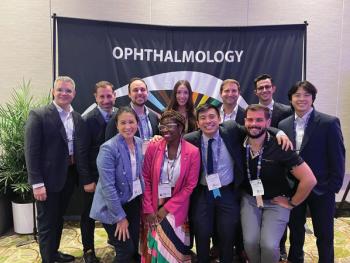
Patient-assistance programs for AMD treatments
Although a proven treatment therapy, age-related macular degeneration (AMD) requires frequent, costly anti-vascular endothelial growth factor (anti-VEGF) injections. Some pharmaceutical companies do have patient-assistance programs to help alleviate the financial burden.
By Michelle Dalton, ELS
Although a proven treatment therapy, age-related macular degeneration (AMD) requires frequent, costly anti-vascular endothelial growth factor (anti-VEGF) injections. Some pharmaceutical companies do have patient-assistance programs to help alleviate the financial burden.
Lucentis Support Programs
The
Patients on the program also receive access to financial resources that can help with out-of-pocket costs and reimbursement support.
The Lucentis Patient Support Program sends education materials to enrolled patients, including advice on asking questions during appointments, general information on wet AMD and its treatment, and tips on managing low vision. Sample low-vision tips include:
- Use pots and pans with heat-resistant handles and knobs to maximize safety in the kitchen;
- Remove potential obstacles, such as coffee tables, footrests, and stools to avoid injury;
- Avoid glare-inducing furniture or cover furniture with material to reduce this effect;
- Pin down area rugs to avoid tripping over them.
Genentech also provides patients with a free Amsler grid, including instructions on its use, to help patients monitor their vision.
Lucentis Access Solutions
Lucentis Access Solutions specialists can verify if a patient’s insurance covers AMD medication and determine out-of-pocket expenses. Specialists also can recommend patient-assistant programs and coordinate medication access with doctor’s offices and pharmacies.
For patients who need financial assistance with their co-pay, Lucentis Access Solutions provides patients access to an independent co-pay assistance foundation. The Genentech Access to Care Foundation is available to patients who do not have insurance, whose health insurance does not cover Genentech medication, or to patients who have health insurance (including commercial or government insurance plans), but pay more than a certain amount for their medicines each year.
Lucentis Co-Pay Card
Finally, the
Focus on Access
Patients on Macugen (pegaptinib) injections for the treatment of wet AMD may be eligible for the Focus on Access program from Bausch + Lomb. The Focus on Access program helps eligible patients secure access to Macugen. Patients also may receive reimbursement counseling.
EYLEA4U
EYLEA4U from Regeneron Pharmaceuticals provides patient support for Eylea injections. For patients with commercial insurance not funded through the U.S. Government, EYLEA4U may be able to offset some out-of-pocket co-pay costs.
For patients’ insurance through a government healthcare program, such as Medicare or Medicare Advantage, EYLEA4U can refer patients to an independent charitable foundation designed to help patients pay for medications. An EYLEA4U Specialist will not only refer patients to a charitable foundation, they will follow up with the foundation until a decision is made on the application.
For patients without insurance or whose insurance does not cover Eylea injections, EYLEA4U may be able to provide the drug free of charge.
EYLEA Injection Co-Pay Card
Regeneron also offers patients the EYLEA Injection Co-Pay Card Program. The program is designed for patients with commercial insurance (not funded through a government healthcare program), but there is no annual income limit on program participation. The program provides patients up to $10,000 in assistance per year toward product-specific co-pay, co-insurance, and insurance deductibles for EYLEA.
To be eligible, patients must have an insurance company that covers Eylea, patients must be a U.S. resident, and patients must pay more than $5 for each treatment.
Newsletter
Keep your retina practice on the forefront—subscribe for expert analysis and emerging trends in retinal disease management.












































